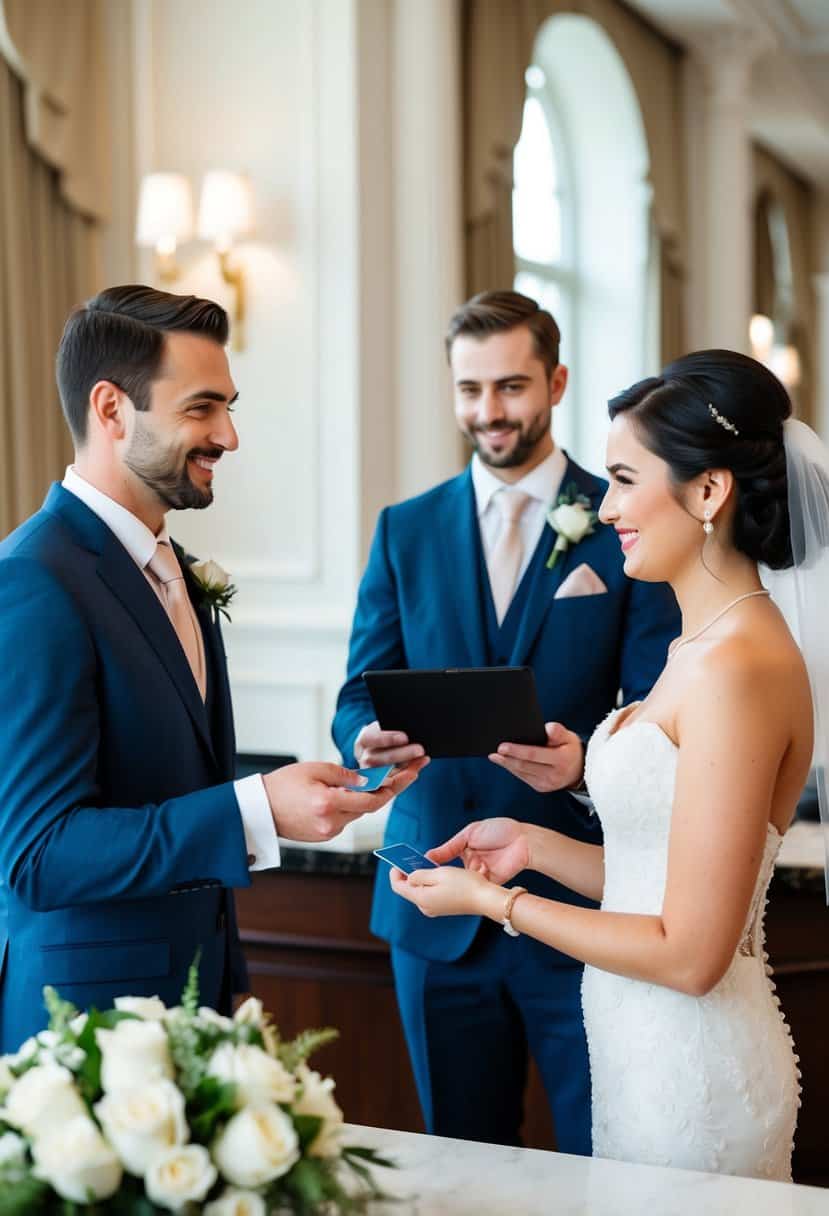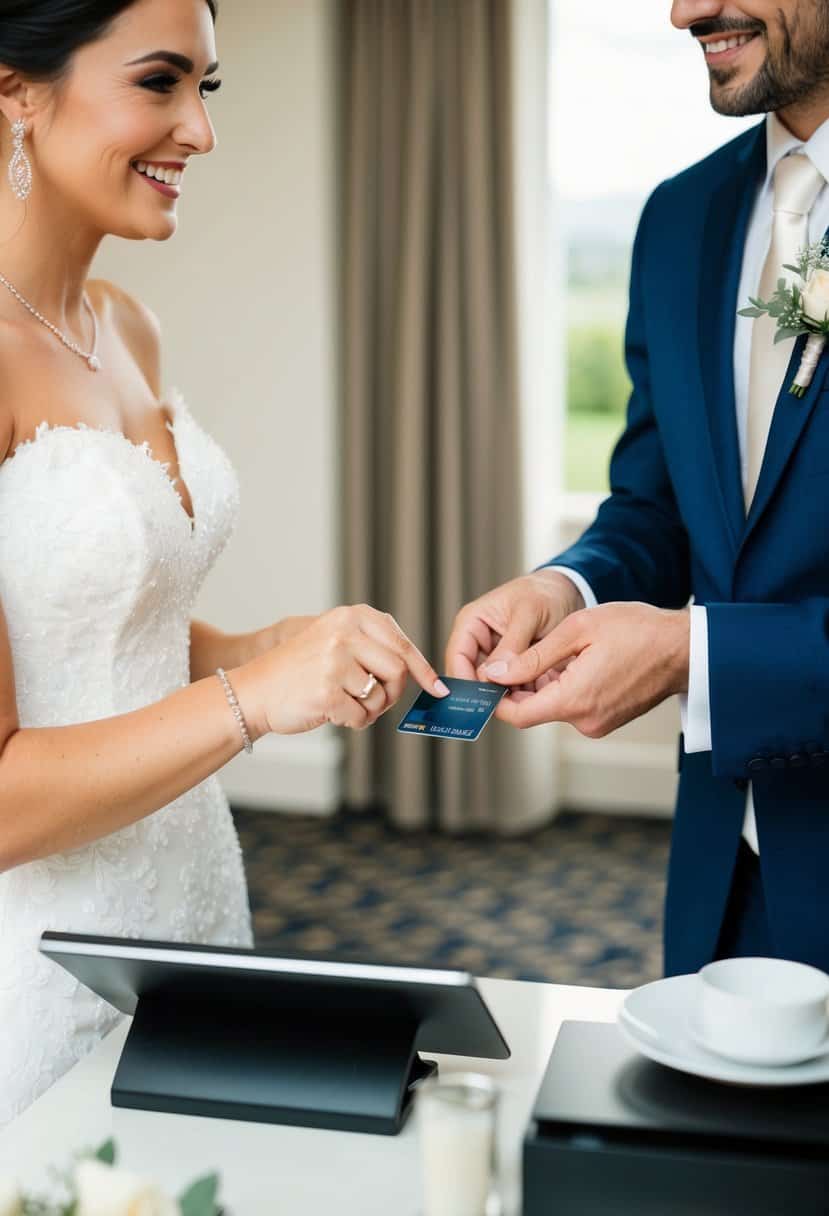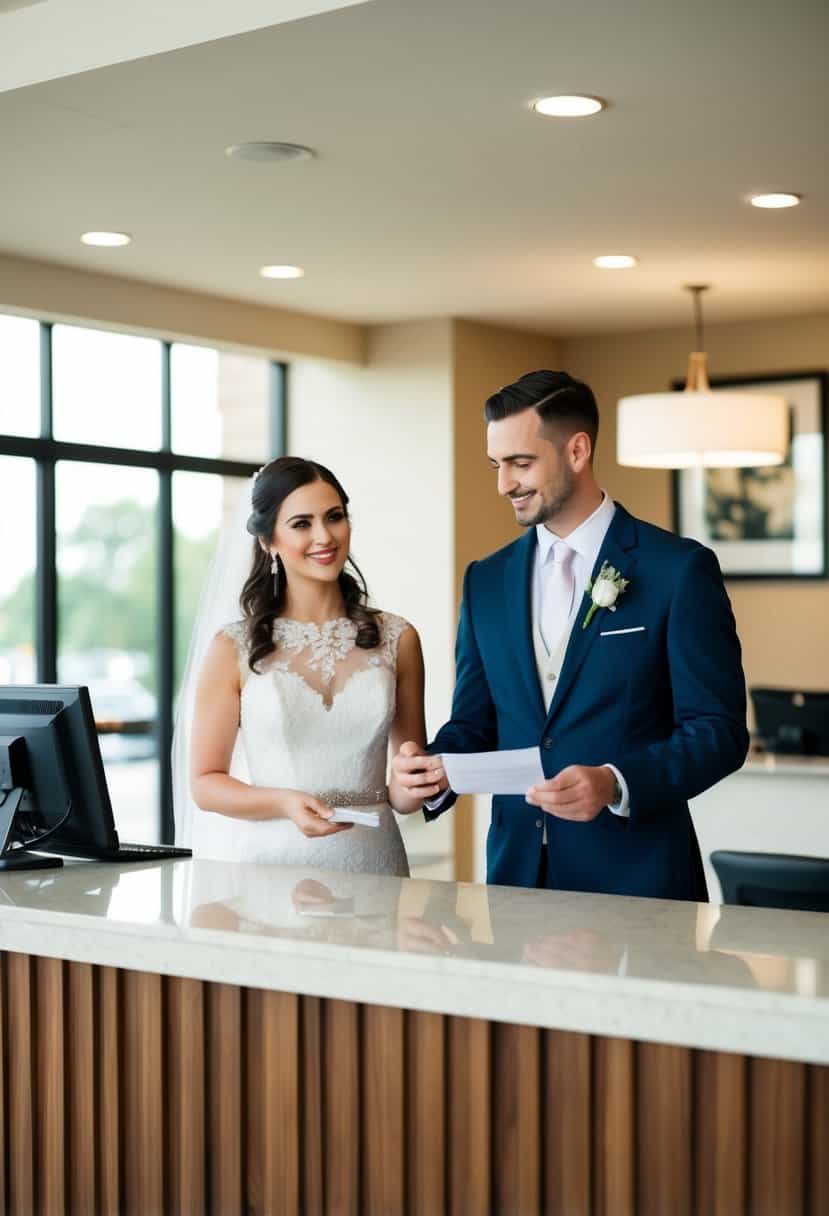Do Guests Pay for Hotel Wedding? Understanding Costs Involved
You’re planning a wedding and figuring out accommodations for your guests can feel like a puzzle. A common question that comes up is who should foot the bill for hotel rooms. Typically, guests are responsible for covering their own accommodation costs. This is seen as part of their travel expenses when they attend your big day.

However, it’s always a nice touch if you can secure a group rate or room block at a nearby hotel, helping your guests save a bit of cash.
Consider including all the details, like booking links or special codes, on your wedding website. This way, guests know right where to go for the best deals.
Want to show extra appreciation? If it’s within your budget, covering the cost of a night’s stay can be a wonderful gesture of gratitude. It’s not expected, but it can be a delightful surprise for those attending your wedding.
Understanding Wedding Guest Accommodations

When planning a wedding, figuring out where your guests will stay is important. You’ll want to ensure they have comfortable accommodations, and this often involves considering hotel room blocks and getting good group rates.
Hotel Room Block Basics
A hotel room block is a reservation of multiple rooms in a hotel for your wedding guests. This setup can offer convenience and potentially save money.
By blocking rooms, you often get a fixed rate, which can protect against price increases as the wedding date nears.
Rooms are usually part of a contract between you and the hotel. These deals often require a minimum number of booked nights. It’s crucial to read the contract terms carefully to understand any potential penalties for unused rooms.
Having a room block also helps guests find accommodations nearby, which simplifies their travel plans.
Group Rates and Booking
Securing a group rate with a hotel can provide your guests with a discounted price. These rates often depend on the number of rooms reserved and the duration of their stay.
It’s helpful to contact multiple hotels to compare their group rates and see which one fits your needs best.
When booking hotel rooms, communication is key. Informing your guests about the available rooms and their rates will help them book without confusion.
You can provide them with a special link or code to make the reservation process smooth. This information is often shared through save-the-date notices or a wedding website.
Making this process easy for your guests will show your thoughtfulness and make their experience more enjoyable.
Roles and Responsibilities

When planning a wedding, understanding who handles specific tasks can help make everything run smoothly. In this section, you’ll learn about who typically pays for hotel rooms for wedding guests and what a wedding planner does during the process.
Who Pays for Hotel Rooms?
Traditionally, guests are expected to cover the cost of their own hotel accommodations. This isn’t usually part of the couple’s wedding budget.
On average, if guests are driving to the wedding, they might spend around $190 on a room. If traveling from farther away, costs can rise to about $340.
It helps to provide guests with a list of nearby accommodations or reserve a block of rooms at a discounted rate. This makes it easier for guests and can often secure better prices, easing the financial burden on everyone involved.
Wedding Planner’s Role
Your wedding planner plays an essential role in organizing the event. They help manage various tasks, from coordinating with vendors to scheduling the day’s events.
Planners often work closely with you to design the perfect wedding experience. They can assist with the logistics of guest accommodations by suggesting hotels or booking room blocks.
Their expertise ensures that all details align with your vision and budget. Planners are there to reduce stress by handling unexpected issues and helping keep the timeline on track, enabling you to enjoy your special day.
Destination Wedding Logistics

When planning a destination wedding, coordinating logistics for guests and understanding key hotel contract terms is crucial. A well-organized plan ensures a smooth experience for everyone involved.
Coordinating for Out-of-Town Guests
Making travel arrangements for out-of-town guests is essential. You can help by offering a list of recommended accommodations, ranging from budget-friendly options to luxury resorts.
It’s common for the couple to reserve room blocks at these hotels, securing discounted rates for guests.
Communicating regularly with your guests is a good practice. Set up a website or group chat to share details about transportation, local attractions, and wedding events. This keeps everyone informed and reduces travel-related stress.
Travel arrangements can vary, so clarify who covers which expenses. Guests typically pay for their own travel and lodging, though you might choose to cover some costs or provide extras like welcome baskets.
Attrition Clause and Allowable Shrinkage
Booking accommodations often involves understanding contracts and terms, like the attrition clause. This clause protects hotels by ensuring that a minimum number of reserved rooms are filled.
It’s important to know about allowable shrinkage, the percentage of reduction allowed in your room block. This term helps manage changes without financial penalties.
Negotiate these terms with the hotel to avoid surprises if fewer guests attend than expected. Being familiar with the hotel’s policies can make a big difference in ensuring smooth and cost-effective arrangements. Working with a planner can also be beneficial, as they often have experience with these contracts and can help you make informed decisions.
Pre-Wedding Arrangements

Planning a wedding involves many steps, especially before the big day arrives. Ensuring a proper guest list and organizing a rehearsal dinner are crucial. You want everything to run smoothly.
Managing the Guest List
Creating your guest list is one of the first steps. Start by gathering names and contact details of everyone you want to invite. Family, friends, and colleagues are common choices. Prioritize based on your venue’s capacity.
Sending out wedding invitations early is key. This gives guests enough time to plan. Include important details like the date, time, and location of your celebration. Use RSVP cards or online tools to track responses.
Keeping the list organized can prevent oversights. Use spreadsheets or apps to manage updates. Mark seating arrangements, dietary preferences, and other specifics. Regularly update your list as responses come in.
Organizing the Rehearsal Dinner
The rehearsal dinner usually happens the night before the wedding. It’s a chance for close family and the bridal party to relax and practice. Choose a convenient location near the wedding venue.
Decide on a guest list for the dinner. Traditionally, it includes the wedding party, immediate family, and close friends. Send invitations separately from the main wedding invites to avoid confusion.
Plan the menu based on preferences and budget. Whether it’s a casual buffet or a formal meal, consider everyone’s needs. This dinner gives time for speeches, toasts, and expressing gratitude to those involved.
Communication with Guests

Clear communication with your wedding guests helps ensure they know where to stay and how to plan their visit. By using a wedding website and providing detailed wedding invitations, you can make sure your guests have all the information they need.
Utilizing a Wedding Website
A wedding website is a great tool for sharing information with your guests. You can include details about guest accommodations and link to special hotel rates.
Many couples create a dedicated section to list hotels near the venue and any room block contracts you’ve secured.
Update your site regularly with event details and any changes. Having a central place to share this information makes it easy for guests to plan their stay. You can also use it to share maps, directions, and even itineraries.
Encourage guests to check the website frequently for the latest updates. Consider adding a frequently asked questions section to address common queries. This can save you and your guests time by putting all the answers they need in one place.
Details to Include in Wedding Invitations
Your wedding invitation should clearly communicate the essentials of your event. Besides the date and location, add any special instructions for accommodations. If you’ve arranged a discounted hotel rate, mention the process for booking these rooms. Let guests know whether they are responsible for their accommodation costs or if you will cover it.
Include an RSVP card or link to an online RSVP form. Provide contact information for anyone who can answer accommodation questions.
Consider adding a note about transportation options, such as shuttle services, so guests can plan accordingly.
Make sure your invitations reflect the style and tone of your wedding day. Providing these details upfront will help your guests feel informed and welcome, ensuring a smooth and enjoyable experience for everyone.


